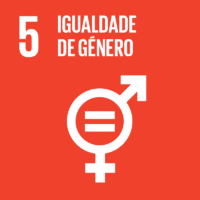Ciência_Iscte
Comunicações
Descrição Detalhada da Comunicação
Representations on the Women's Work and Activism in Portugal during the Dictatorship (1930-1970)
Título Evento
European Social Science History Conference
Ano (publicação definitiva)
2023
Língua
Inglês
País
Suécia
Mais Informação
--
Web of Science®
Esta publicação não está indexada na Web of Science®
Scopus
Esta publicação não está indexada na Scopus
Google Scholar
Esta publicação não está indexada no Google Scholar
Esta publicação não está indexada no Overton
Abstract/Resumo
This communication addresses working women in Portugal between 1930 and 1970, during the fascist dictatorial regime, called “Estado Novo”. It followed the democratic 1st Republic between 1910 and 1926 (corresponding to the named 1st wave of feminism in Western Europe and North America). This study was based on primary sources, like the General Population Census, and monographies. It aims to make a brief intersectional analysis on women, classes, and "races". As Maria de Lurdes Pintassilgo, the only female Prime Minister of democratic Portugal, stated: "The social movement that women constitute today potentially carries with it the answer. The collective strength of women, as the social group which is both the most discriminated against and the most international, is factor which history cannot yet account for" (1998, p. 47). So, we have considered working and elite women, with awareness of their oppression during fascism, often with different perspectives. We intend to know the rates of active women (1930-1970), dismantling the traditional global socio-economic analysis, based on the analysis of the male gaze. Thus, we carried out a hermeneutic critique of the primary sources, namely the socio-professional classifications and the concepts expressed at the different epochs. There was a change of concepts such as "profession", "active population", "productive and remunerated work" and "individual and family work". From a feminist perspective several questions were raised: Should the concept of "active women" encompass only paid workers? How should workers performing reproductive activities in the family sphere and women considered "auxiliary workers" be classified? As historians Michelle Perrot and Sylvie Schweitzer have noted, women have always worked. The perspectives of the epochs about visibility or invisibility of women's work are demonstrated in the seriation criteria followed in the statistical sources. We also address the women’s activism during the dictatorship in the resistance to the regime, as well as in the associative movement (mutual aid associations, unions, and feminist associations).
Agradecimentos/Acknowledgements
--
Palavras-chave
Women,Work,Representations,Activism
Classificação Fields of Science and Technology
- Sociologia - Ciências Sociais
- História e Arqueologia - Humanidades
Contribuições para os Objetivos do Desenvolvimento Sustentável das Nações Unidas
Com o objetivo de aumentar a investigação direcionada para o cumprimento dos Objetivos do Desenvolvimento Sustentável para 2030 das Nações Unidas, é disponibilizada no Ciência_Iscte a possibilidade de associação, quando aplicável, dos artigos científicos aos Objetivos do Desenvolvimento Sustentável. Estes são os Objetivos do Desenvolvimento Sustentável identificados pelo(s) autor(es) para esta publicação. Para uma informação detalhada dos Objetivos do Desenvolvimento Sustentável, clique aqui.

 English
English



